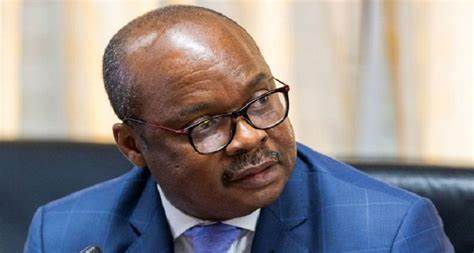Despite the recent decline in interest yield on Treasury bills, banks may adopt a wait and see attitude before lending at pre-covid-19 level.
There had been a decline in interest rate, particularly the 91-day T-Bill in recent weeks, falling from about 14.10% to 13.11 percent.
Speaking to Joy Business, Senior Economic Analyst with Databank Research Courage Martey said banks are mindful of the perceived risks in the economy.
“We could see a reduction in lending rate, however I’m not very confident that we will see a commensurate reduction in lending rate. The reason is that the treasury yields are only a benchmark for determining lending rate but beyond those benchmarks, we also have certain factors that determine risk premium”
“It is the bench mark plus risk premium that gives you the lending rate so if the risk premium moves in opposite direction from the direction of movement in the benchmark yield, you might not see a commensurate decline in lending rate”, he explained further.
“You will agree with me that currently the risk appetite of banks is quite low because of the covid-19 induced risk across the economy”, he added.
The banks advanced more than GH¢14 billion as fresh loans last year to help businesses and individuals badly hit by covid-19.
Chief Executive of the Ghana Association of Bankers, John Awuah also disclosed that GH¢4.3 billion loans were restructured to support businesses that were badly hit by the pandemic.
GH¢4.47bn loans restructured
According to the January 2021 Monetary Policy Report On credit, the Bank of Ghana said the implementation of the Covid-19 related regulatory reliefs and policy measures helped supported lending activities.
The 23 banks provided support and reliefs in the form of loan restructuring and suspension of loan repayment to cushion 16,694 customers, severely impacted by the pandemic.
Total outstanding loans restructured by banks as of December 2020 amounted to GH¢4.47 billion, representing some 9.4% of industry loan portfolio.
Non-Performing Loans (NPL) ratio increased from 14.3% in December 2019 to 15.7% in June 2020, arising from the pandemic-induced repayment challenges. But it declined to 14.8% in December 2020 due to loan write-offs and increased credits, particularly during the last quarter.
Latest Stories
-
Trump threatens ‘very high’ tariffs on Denmark over Greenland
31 minutes -
Full text: Mahama inaugural speech
37 minutes -
CAF increases CHAN prize money to $3.5m
47 minutes -
NFF appoints Éric Chelle as Head Coach of the Super Eagles
56 minutes -
Collins Adjei Kuffuor writes: Mahama’s inaugural speech – a blueprint for Ghana’s future
1 hour -
Ghana is open for business again – Mahama assures business communities
1 hour -
Sege MP holds dinner with TOSA 96
2 hours -
Collins Adjei Kuffuor writes: Ghana’s tax system needs urgent reform
2 hours -
Rebecca Tweneboah Darko: ‘I love you King Promise, marry me’
2 hours -
Who becomes Mahama’s minister for Tourism, Arts and Culture?
3 hours -
Dagbani Wikimedia User Group honours 11 Wikimedians for excellence in 2024
4 hours -
Rebuilding of Kantamanto must meet fire safety standards – GNFS
4 hours -
Centre for Social Justice applauds Mahama’s return as President
4 hours -
CDKN trains early career researchers on knowledge brokering, science communication
4 hours -
Council of State aspirant congratulates President Mahama on landmark victory
4 hours

